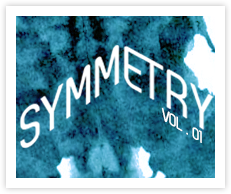

PR and Journalism: Why can’t they just get along?
Alison DeLory // January 20, 2012

If there were an actual physical battle pitting journalists against public relations (PR) professionals, I expect it would take place in a giant puddle in which mud would be slung enthusiastically from both sides.
The tension between journalism and PR is not new. Honestly, I’m sick of it. I’ve toggled between the two professions for 20 years and witnessed it on both sides. When I worked as an editor for a large magazine publisher it was commonplace for coworkers to take a call, roll their eyes, cover their mouthpieces and whisper, “Save me. It’s some PR flack.” If a journalist became fed up with working in the newsroom and deigned to take a job in PR, that person was criticized for, “Going over to the dark side.” Then, when I returned to school for my masters in PR, I found myself in classes with students who complained of journalistic bias and that the media never told their organization’s story sufficiently or accurately. Frankly, at this moment in our history, the broad-stroke stereotyping that persists on both sides is tiresome and borderline offensive. That it continues to rear its head in an age when we preach tolerance is surprising, as are the creative new ways in which it is manifesting itself in the digital age. I offer two recent examples.
Exhibit A
Freelance Nova Scotian journalist and retired King’s University journalism professor Bruce Wark posted this to his blog mediaspin.ca this week: Lies, damned lies and public relations (http://mediaspin.ca/2012/01/lies-damned-lies-and-public-relations/). It opens with: “If there’s any justice, the hottest places in Hell will be reserved for PR flacks—especially those who earn their pay by spinning half-truths and outright lies to the citizens who pay their salaries.” He uses as his example a press release from Communications Nova Scotia that explains away the 3% cut to university funding by emphasizing that tuition won’t rise, research remains a priority, and investment into sustainability measures will continue. What is unfortunate is that Wark had a valid point to make about obfuscation and doublespeak, but he degenerated his argument with name-calling and over-reaction. The hottest places in hell? C’mon. Let’s debate this intelligently and look at the layers of responsibility. Marilyn More, the provincial cabinet minister who oversees universities, presumably approved the message. Why is she spared criticism, other than that which Wark originally waged against her hairstyle (before editing out that mean gibe after a reader challenged him)?
Exhibit B
This one is from Ragan Communications, and appeared in my Twitter feed innocently enough with the title: 12 things PR pros wish the media knew (http://www.prdaily.eu/PRDailyEU/Articles/10503.aspx). Scan the list and you’ll see “1. That PR is not journalism’s bitch,” or “8. That I cannot always track down a spokesperson in two minutes just because you have a deadline,” and my favourite, ” 9. That PR is not the enemy of journalism.” If they aren’t enemies, why write such an antagonistic, inflammatory and rude post?
It would be easy to find countless more examples but I’m sure you get my point. I wonder in the digital age whether it’s worse now than ever, given that it’s easier to name-call and insult someone in a medium that tolerates—if not encourages—people to communicate with strong and often unsubstantiated language.
In my own experience, the vast majority of journalists I have worked with have been incredibly bright and dedicated people, committed to telling news that matters. They fight for social justice, the environment, political accountability, and better health care. Likewise, most of my colleagues in public relations stand by Canadian Public Relations Society Code of Ethics, which states: “A member shall practice the highest standards of honesty, accuracy, integrity and truth, and shall not knowingly disseminate false or misleading information.” They, too, hold high ideals and work hard for causes they care about.
Just this past week I was writing a magazine article about mobile medical care and worked with several fantastic media relations professionals at various hospitals and nonprofits who sent me timely information and found me sources I would not otherwise have had access to. I contacted them early, was polite with my requests, and told them I appreciated their help. Call me crazy, but I believe they appreciated my manners and would be willing to work with me again.
Fellow journalists and PR pros, we depend on one another and are more alike than we care to admit. Let’s not forget we are all professional communicators with jobs to do and stories to tell. I’d rather we slung some mutual understanding and respect at one another rather than mud.
-
http://www.alisondelory.com/ Alison DeLory
